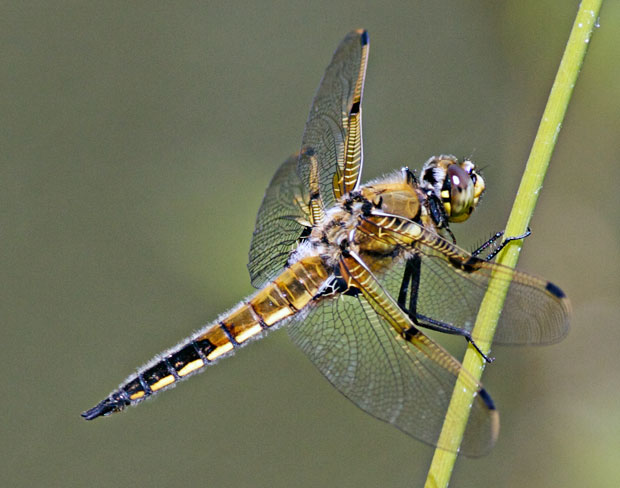Having read nearly 300 pages of Ueda’s Basho and His Interpreters, I find that my favorite poems still tend to be those that are the most concrete and that require the least knowledge of Japanese culture or Japanese literature:
a dragonfly
vainly trying to settle
onto a blade of grass
tonbô / ya / toritsuki / kaneshi / kusa / no / ue
dragonfly / :/ holding / is-unable / grass / ‘s / upside
COMMENTARY
In general short verse form, as it evolves with time, tends to focus more and more on things minute and delicate. This hokku shows the beginning of that tendency – Handa
This looks likes simple descriptive poem, and yet it makes us wonder whether Basho’s eyes were not observing something important in the very heart of nature. – Momota
Of course, this poem reminds me a number of summer photographs I took, like this one,

so it’s probably not surprising it’s one of my favorites.

This post and the last one made me want to read Basho and His Interpreters for myself, so I ordered it on-line this morning. (I live so far out in the boondocks that I don’t have access to a library.)
I also ordered Stephen Mitchell’s translation of Gilgamesh, something I’ve coveted since reading this. Have you read it yet? It seems like it’s up your alley.
Loren, this makes the connection so many of us appreciate in your photographs. I think the wonder of the understated, frozen moment you capture works the same wonders a Basho poem works. I think each medium important, each provides its own mystery. Certainly you combine interest and talent.
KJM
After looking closely at your luminous photo of the elegant patterns that define a dragonfly, I noticed:
tonbo = dragonfly
which made me think of:
ton beau = sweet tone
something I just learned as I started reading a book called LE TON BEAU DE MAROT: IN PRAISE OF THE MUSIC OF LANGUAGE,” by Douglas R. Hofstadter.
What KJM said.